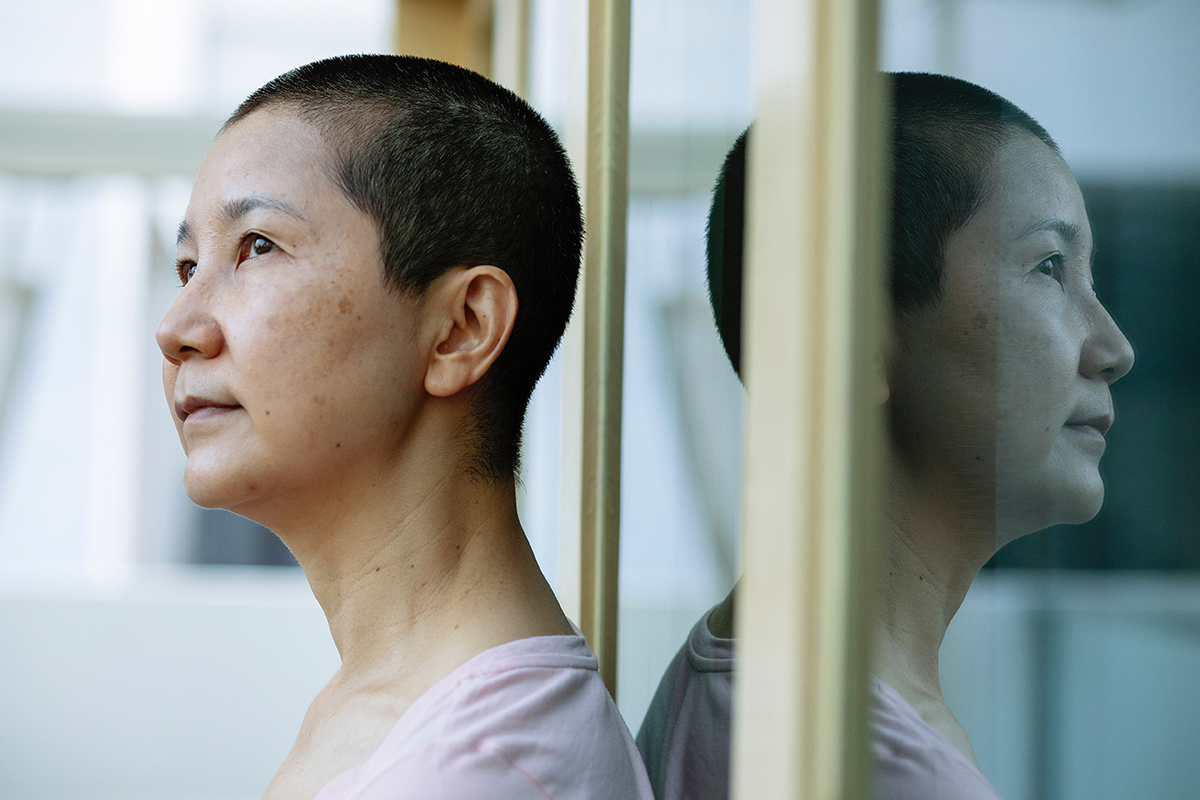Dr. Shannon Westin–Associate Professor in the Department of Gynecologic Oncology and Reproductive Medicine at UT MD Anderson Cancer Center, and Director of Early Drug Development/Phase I Trials–has a motto: Research is what cures cancer.
Dr. Westin spoke at our International Gynecologic Cancer Conference, sharing everything from what exactly a clinical trial is and how it helps propel science forward, to how to find one and what questions to ask your doctor about them.
You can play Dr. Westin’s presentation, and many more, in our conference videos collection.
What is a clinical trial?
Sir Bradford Hill, considered to be the father of clinical trials, defined it in 1962 as “a carefully and ethically designed experiment in humans with the aim of answering some precisely framed question.” Broken down, a clinical trial:
- Is a research study that involves patients
- Focuses on an improvement in healthcare and/or outcomes
- Is actually the tail end of a long process (could be decades!) of trying to get a drug to market
- Has objectives, endpoints and a rationale
- Has eligibility criteria and strict safety considerations
- Has a study design with specific details as to how many people are involved and for how long, and how they will be treated
- Has toxicity modifications (what doctors should do if they see certain side effects)
- Defines ahead of time a set of measurements
Sponsors of a clinical trial could include the National Cancer Institute, pharmaceutical companies, non-profit organizations (like OCRA) or local institutions/medical centers.
What is the pathway to FDA approval for clinical trials?
It all starts with an idea or hypothesis. Preclinical studies and research take place in test tubes (cell lines) and animal models. From there, theories that show merit move onto human studies. These are as follows:
- Phase I are small studies that determine the best dose while avoiding side effects and whether it is working. There are many Phase I studies, and only a select few move onto Phase II.
- Phase II studies are a bit larger and determine whether a particular drug or therapy works for a particular type of cancer (or other illness). If the answer is yes, it will move onto Phase III.
- Phase III studies are very large, randomized trials that compare a new drug to standard of care treatment
These studies, or clinical trials, look for measurable data involving survival rates, symptom control, drug-to-drug interactions, response, toxicity or side effects, and metabolism. At the time of this presentation, there were 500 ovarian cancer Phase I, II and III trials taking place.
Why would someone want to participate in a clinical trial?
Clinical trials are a great way to access cutting edge therapy, as they may allow patients to get access to new interventions sooner than the rest of the population, and can have a positive effect on one’s outcome. Those involved with clinical trials have more doctors’ visits and are closely monitored. Furthermore, the therapy or drug being tested may be better than the current standard of care regimen.
Of course, more doctors’ visits can bring about its own burdens, and being involved in a clinical trial may lead to unknown side effects. And there’s a chance that the therapy won’t work.
How are patients in a clinical trial protected?
While there is an element of unknown involved in participating in a clinical trial, there are certain protections that are standard:
- The study is always voluntary, and a patient can withdraw at any time
- The trial is monitored by the sponsor
- Costs to patient are explained ahead of time. Trials don’t compensate patients for participating, but travel costs may be covered.
- Patients will be made aware if anyone in the trial has had a bad side effect
- Patients are closely monitored by their healthcare professionals
How to find clinical trials?
Patients who are interested in participating in a clinical trial are encouraged to speak to their doctor or visit OCRA’s Clinical Trial Finder.
More clinical trials information:
Interested in learning more about clinical trials?
- Clinical Trials: Who Conducts Clinical Trials, Clinical Trial Misconceptions & FAQs, Questions to Ask Your Doctor, and more
- Study Uncovers Barriers to Clinical Trial Participation
- COVID-19 and Oncology Clinical Trials
This article was updated in April 2025.


